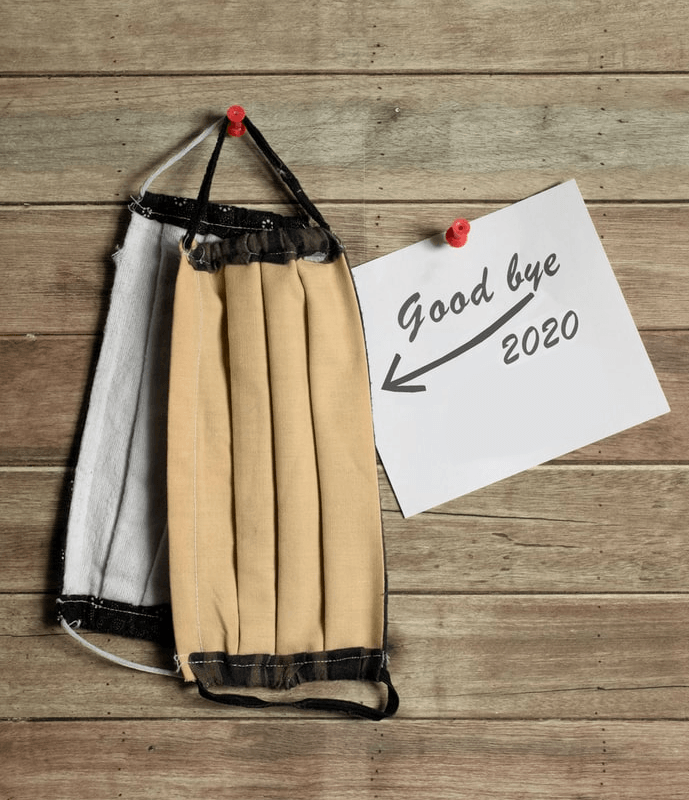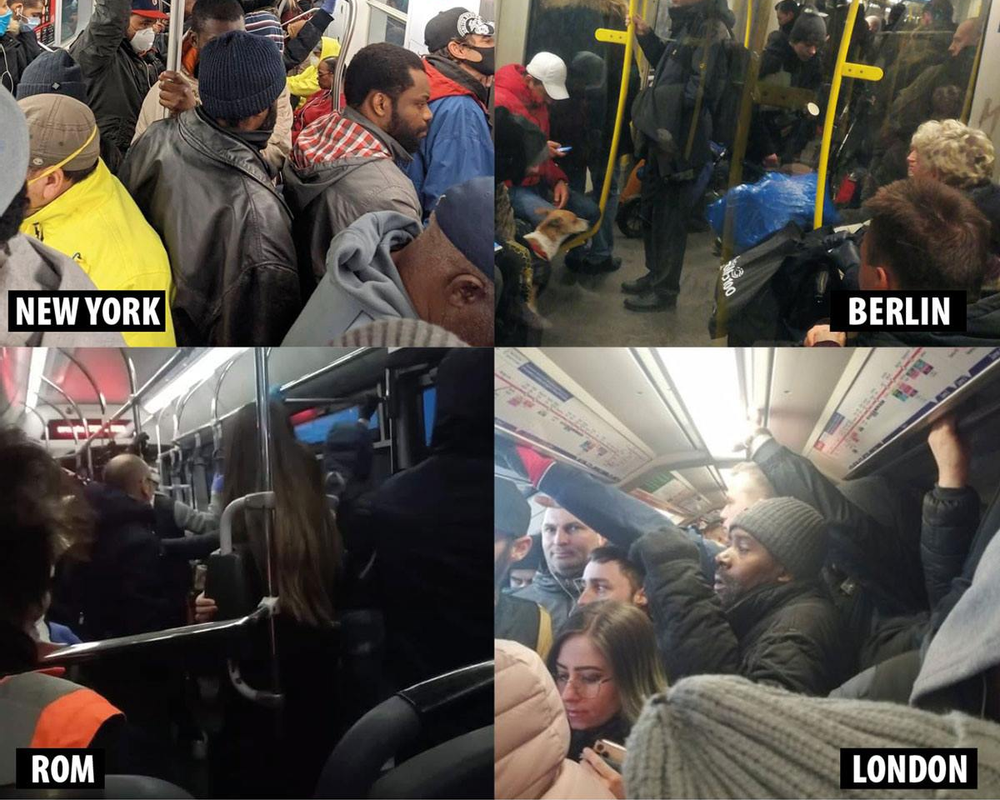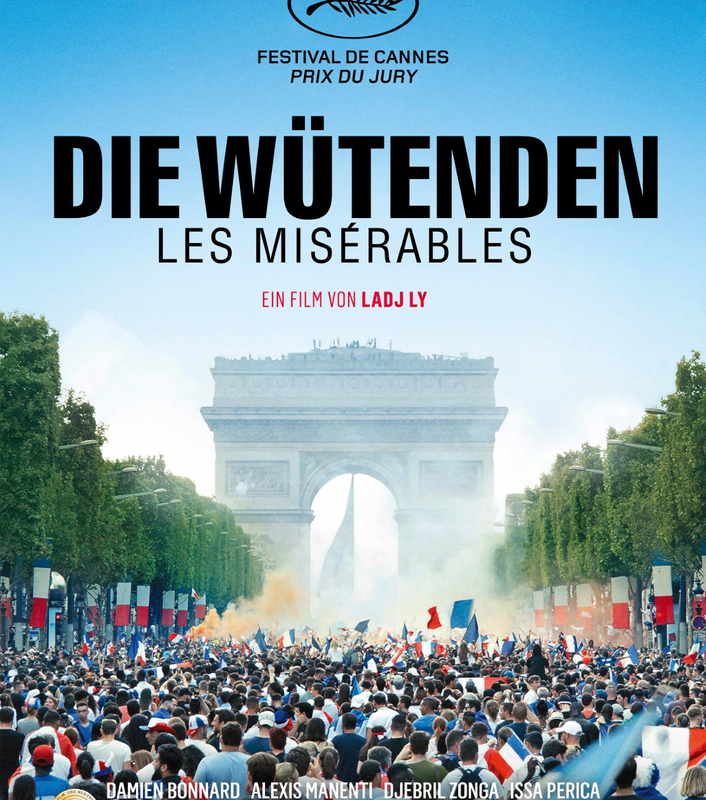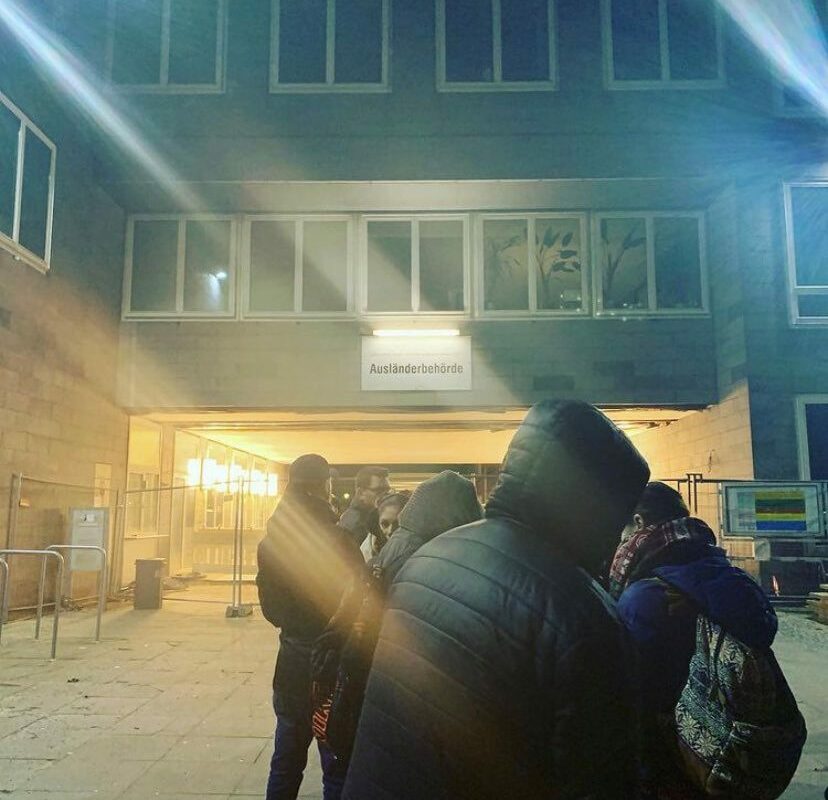For the last 2 days, we’ve been publishing a list of the 30 most viewed articles on ‘theleftberlin’ in 2020 – first #30 – #11 and then the top ten. Speaking personally, I was expecting our most viewed articles to be mainly about COVID-19. In fact, less than a third have a direct relationship to the Coronavirus.
Although the virus has rearranged our everyday routines, life – and politics – have gone on. Whether it’s the growing effect of gentrification in Berlin, the continued growth of the far right, or the failed attempts of Jeremy Corbyn and Bernie Sanders to provide an electoral challenge to capitalism, there has been much to regret in the past year.
But our side has also had significant victories – even if these were mainly in reaction to the right wing offensive. The police murder of George Floyd provoked an international movement which took things into its own hands and tore down colonial statues. The continued attacks by the Polish government meant that the ‘Black Umbrellas’ movement took to the street once more. And as the year was drawing to a close, we witnessed the biggest general strike in world history in India.
In Berlin there have been demonstrations against racism and gentrification and to stop the privatisation of the S-Bahn. And in Moabit, Korean and Japanese activists have been demonstrating to retain a statue (the Friedensstatue) in remembrance of the mainly Korean victims of sexual violence in Japan.
Our website has covered all these events and more. We have also worked with various international movements in Berlin to help give them a voice and to ensure that German politics does not lose the international dimension. You can read about this in the various article in our blog. This article is about what else we contributed.
Original Articles
This website originally published some original articles, together with a variety of interesting articles from other left websites. Towards the end of 2020, we took the decision to concentrate on providing primarily original articles. We now try to publish one article each day, which has been either written or translated by, or for us. We also occasionally publish articles from partner organisations which deserve a wider audience.
If you are interested in us publishing something that you have written or translated, please contact us at theleftberlin@yahoo.com. Please also send us articles which were not written in English, so that we can send them to one of our translators. We are also always looking for people to join our editorial team. And if you wish to help us by translation this is also wonderful and needed.
Photo Galleries of Demonstrations
Partly because of the number of non-Germans living here, Berlin has hosted a wide range of international demonstrations and other actions. Internationals have also taken part in more “local” demos against growing racism and increased gentrification.
Here are some of the demonstrations which we attended and photographed in 2020:
- 12 January Luxemburg-Liebknecht Demo
- 15 February Freedom for Egyptian activist Patrick George
- 30-31 May Remembering George Floyd
- 6 June 20,000 against Racism in Alexanderplatz
- 27 June Black Lives Matter
- 19 August Remembering the Victims of Hanau
- 29 August Coronavirus demonstrators are marching with Nazis and Fascists
- 19 September Rally for Choice
- 3 October Stopping Nazis in East Berlin
- 24 October Rally for Choice in Poland
- 8 November Stop the sell-out of the City. We are reclaiming Berlin
- 20 November Stop Heimstaden
- 25 November We are the Friedensstatue
- 28 November Rally for West Sahara
Recordings of Meetings
We continued to work closely with the Berlin LINKE Internationals, who organise public meetings at least once a month. Because of Lockdown, most of these meetings this year were recorded. We published videos of the following:
- 7 March ,Faschismus bekämpfen – von Griechenland bis Deutschland meeting in German with Thanassis Kampagiannis (lawyer against Golden Dawn), activists from Keupstraße ist Überall, Ferat Kocak (Links*Kanaks)
- 23 March ,Citizenship and racist violence with Jagat Sohail (Berlin for India) and Antony Hamilton (LINKE Berlin Internationals)
- 15 April ,The Coronavirus in Gaza, Spain and New York with Fidaa Zaanin, Ana Barrena Lertxundi and Elizabeth Berman
- 11 May ,Covid-19 crisis: The role of the EU and left answers with Judith Benda and Dimitra Kyrillou
- 25 May ,Coronavirus and internationalism: Solidarity á la Cuba with María Milagros Franco Suárez (Cuban Embassy Berlin), Dr. Emily Brown (graduate of ELAM, Latin American School of Medicine) and Harri Grünberg (Cuba si)
- 22 June ,Ten Years after the Arab Spring. New Insurgencies in the Arab World with Maya Zebdawi (Palestinian political activist in Lebanon), Hamza Hamouchene (Algeria Solidarity Campaign) and Shadia Abdelmoneim (political secretary Sudanese Comunist Party in Germany)
- 13 July ,Occupation, Annexation and Racism: Where is Israel going under Netanyahu? with Shir Hever, Nora Rajab and Ramsis Kiliani
- 2 September Rule of Law and Law Enforcement in France with French MP Daniele Obono and Jerome Bachelier (both from La France Insoumise)
- 12 September ,Fighting ‘LGBT-Free Zones’ in Poland with Kamille Piechaczyk (Dziewuchy Berlin)
- 12 September ,Church Tax, German Food and New Years Eve in Berlin with Jacinta Nandi
- 30 October ,The Left and the US Presidential Election with Ted Knudsen (DSA Berlin), Jeremy Osborne (DSA Berlin) and Hanna Grześkiewicz (LINKE Berlin Internationals)
- 2 December ,The Conspiracy Against Choice. Why abortion rights are under attack in Poland, Brazil and the USA with Alicja Flisak, Debora Thomé and Taylor Storey
- 18 December ,,Organising politics abroad with Hanna Grześkiewicz (LINKE Berlin Internationals) and others
Newsletter
On 28 March 2020, we launched our weekly Newsletter, which now goes out every Saturday at around midday (Berlin time). Each Newsletter now roughly consists of the following sections:
- Letter from the Editors – Summary of the activities and meetings coming up in Berlin in the next week and beyond
- Meetings organised by theleftberlin and the Berlin LINKE Internationals – coming meetings for which we, or our partners in the Berlin LINKE Internationals, are responsible
- Campaign of the Week – introduction to a campaign, particularly one in Berlin which might be interesting to Internationals. So far, we have introduced 30 Campaigns of the Week which you can read more about ,here
- News from Germany and Berlin – this week’s most interesting stories from the local news summarized and translated into English. You can see stories from previous weeks here.
- New on ,TheLeftBerlin.com – a summary of the articles which were published on theleftberlin.com in the previous week.
- Video of the Week – occasional series of videos from meetings in the previous week
If you have not subscribed to the Newsletter already, enter your e-mail address in the bottom left corner of any page of ,theleftberlin.com or contact us at theleftberlin@yahoo.com.
What to expect in 2021
There are several important events scheduled for 2021 including a general and local elections and the referendum initiated by ‘Deutsche Wohnen & Co Enteignen’ for expropriating the big property speculators. We also know that we must continue to be vigilant in the fight against the far right and for international justice.
To help us do this, we are planning to relaunch the website in a new form in the next few months. We hope that it will look much better and be easier to use. If you would like to be part of this, or want to know more about what we are doing, you are invited to a meeting Planning 2021 with theleftberlin.com on Sunday, January 3rd at 5pm
On Tuesday, 12th January at 7pm, our colleagues at the LINKE Berlin Internationals are holding their 2021 Kickoff meeting where they will plan their activities for 2021, most of which we will cover on this website. You can access the meeting online, but if Lockdown is lifted as planned, there is also a limited number of ‘live’ places in Karl-Liebknecht Haus.
We are also planning the following Events, for which we don’t yet have a definite date:
- Dayschool for left activists in Berlin on using social media
- Workshop at the LINKE Berlin Internationals Summer Camp in Hermsdorf
- Monthly “Küfa” with food and chat in Bilgisaray. More details when Lockdown restrictions have been lifted enough for us to do this.
We will discuss other possibilities at the meetings on 3rd and 12th January, and throughout the year. Please contact us if you would like to be more involved.
























































